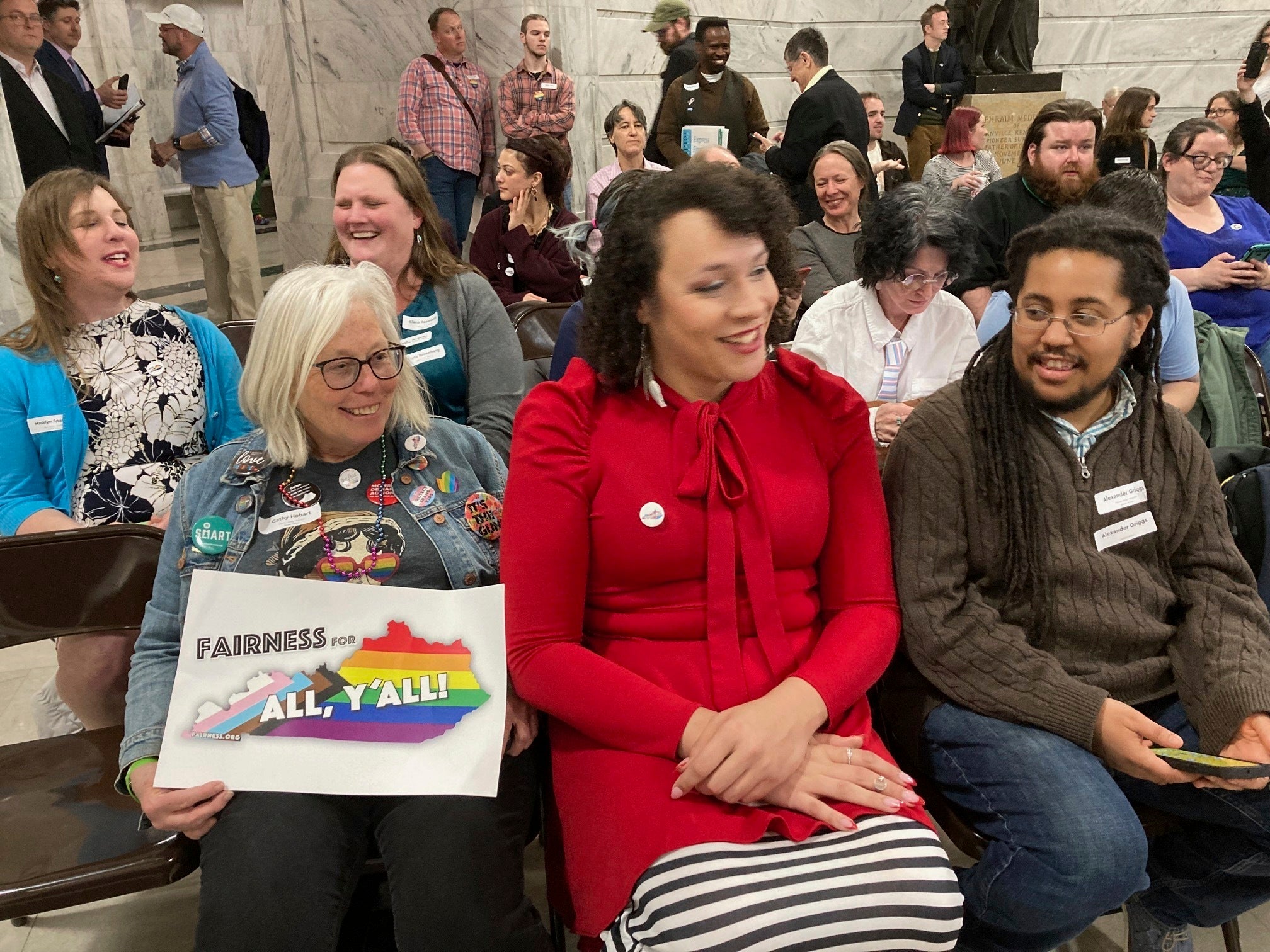Gay rights advocates in Kentucky say expansion to religious freedom law would hurt LGBTQ+ safeguards
Gay rights advocates are pushing back against a measure to broaden Kentucky’s religious freedom law

Gay rights advocates pushed back Wednesday against a Republican-sponsored measure to broaden Kentucky's religious freedom law, claiming it threatens to undermine community-level “fairness ordinances” meant to protect LGBTQ+ people from discrimination.
The measure, House Bill 47, won approval from the House Judiciary Committee, but some supporters signaled a willingness to make revisions to the bill as it advances to the full House. The proposal would need Senate approval if it passes the House. Republicans have supermajorities in both chambers.
“I don’t think any of us here want to open a floodgate of lawsuits or, for that matter, to invalidate what local cities have done across Kentucky,” said Republican state Rep. Daniel Elliott, the committee chairman.
State Rep. Steve Rawlings, the bill’s lead sponsor, said the intent is to give Kentuckians a “fair day in court” if their rights to exercise their religious beliefs are infringed by any government action. The state's existing religious freedom law, enacted more than a decade ago, consists of a few lines, he said.
“The brevity of our current statute and the lack of definitions can give courts ... the excuse to undermine the religious freedom of Kentuckians,” Rawlings said.
Opponents warned that the bill would risk triggering a wave of lawsuits against Kentucky cities and counties that enacted fairness ordinances over the past 25 years. Those ordinances prohibit discrimination in employment, housing and public accommodations based on sexual orientation and gender identity.
"There are 24 communities all across our commonwealth that have stood up to protect LGTBQ people and you’re putting every one of them at risk if you pass House Bill 47,” said Chris Hartman, executive director of the Fairness Campaign, a Kentucky-based LGBTQ+ advocacy group.
Gay rights advocates in Kentucky have made some inroads at local levels while a so-called “statewide fairness” measure has been a nonstarter in the Republican-dominated legislature.
Republican state Rep. Jason Nemes said Wednesday lawmakers should find the right balance that protects religious rights without going so far that it would “effectively obliterate fairness ordinances.” Rawlings offered to work on the bill's language to ease those concerns.
Nemes, one of the bill's cosponsors, expressed support for his hometown’s fairness ordinance. A catalyst for the measure, he said, was the case of a Muslim woman who said she was made to remove her hijab in front of men for her jail booking photo, a violation of her religious rights. The woman was arrested along with several others at a protest in Louisville over immigration issues.
“Ultimately, this bill seeks to ensure that religious rights are adequately protected," Rawlings said. "HB47 ensures that Kentucky courts will use the most accommodating language to ensure that religious Kentuckians have a fair day in court.”
Opponents questioned the need for the bill, saying religious freedoms have strong constitutional protections. Kentucky already has one of the country's strongest religious freedom laws, Hartman said.
They warned that the measure would lead to lawsuits that ultimately could weaken protections for some of the state's most vulnerable citizens.
“I do have a strong Christian faith and background," said Democratic state Rep. Keturah Herron. "However, I do think that we have to be very careful when we say that, based on your religious belief, that you’re allowed to discriminate against people. That is not what we need to be doing here in this commonwealth nor across the nation, and basically, this is what this bill says.”
Bookmark popover
Removed from bookmarks